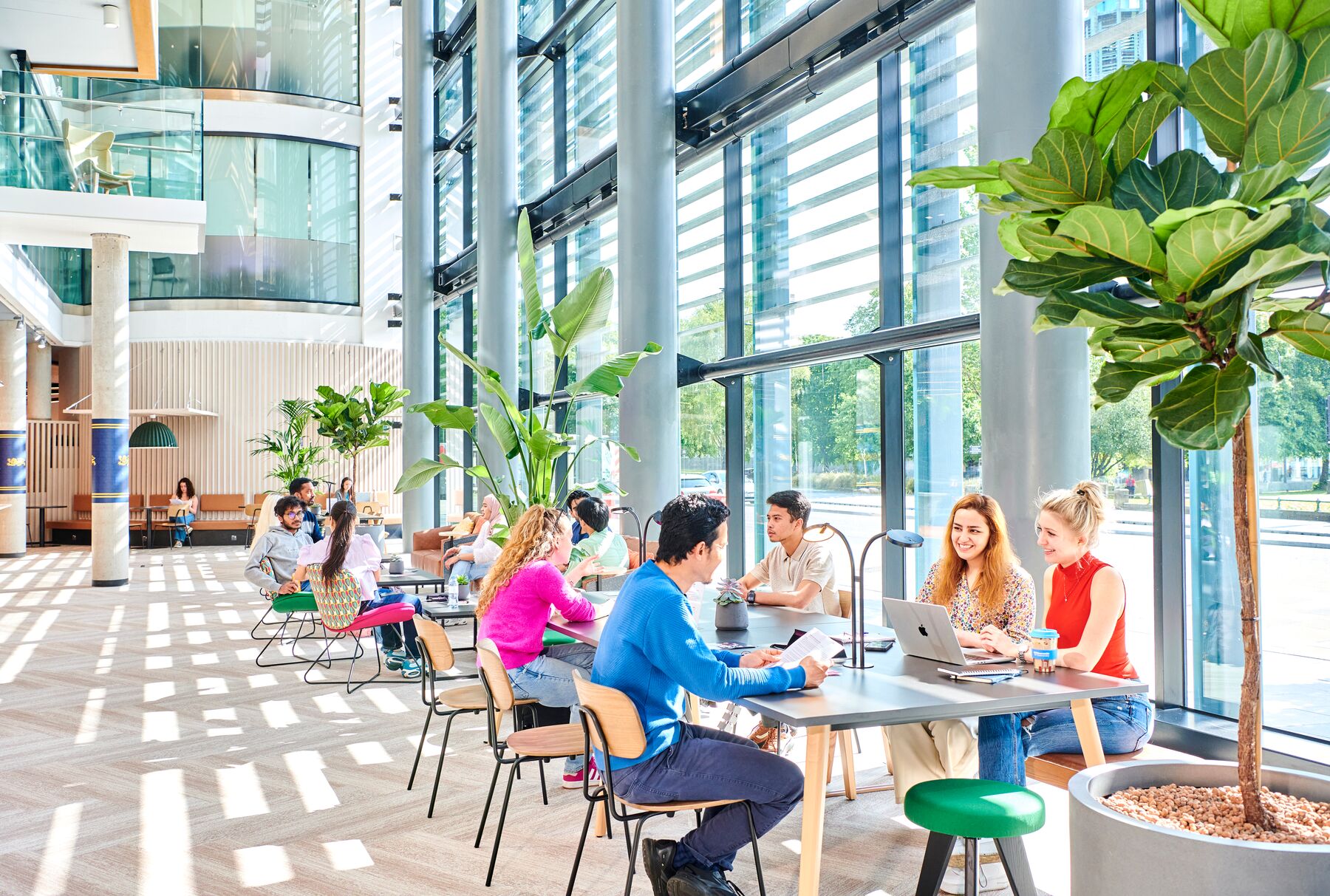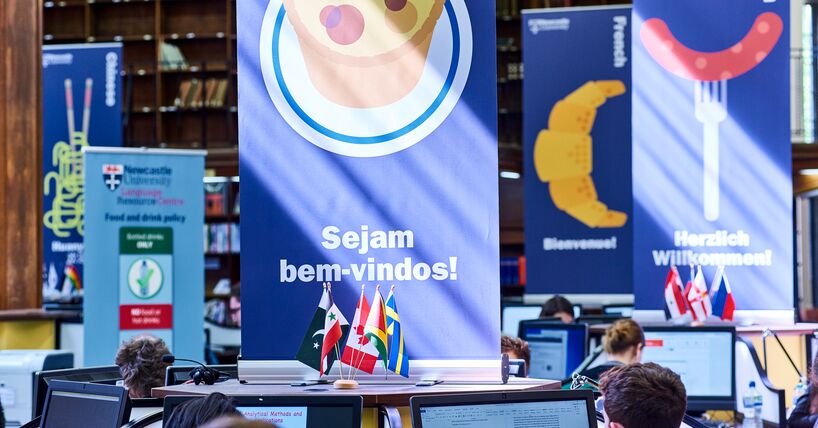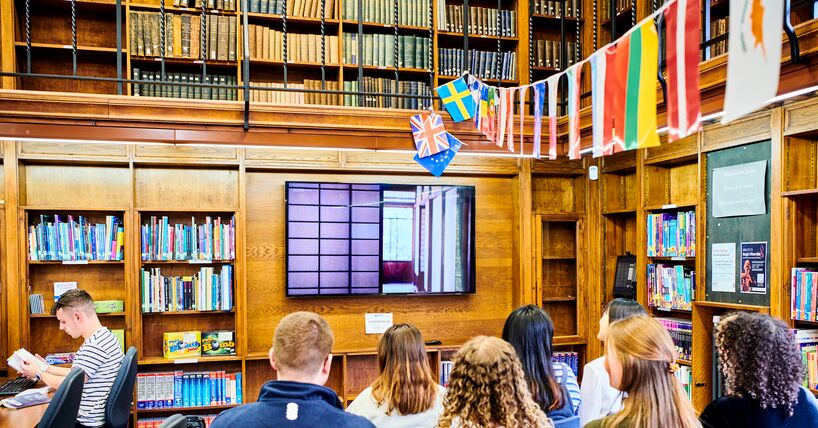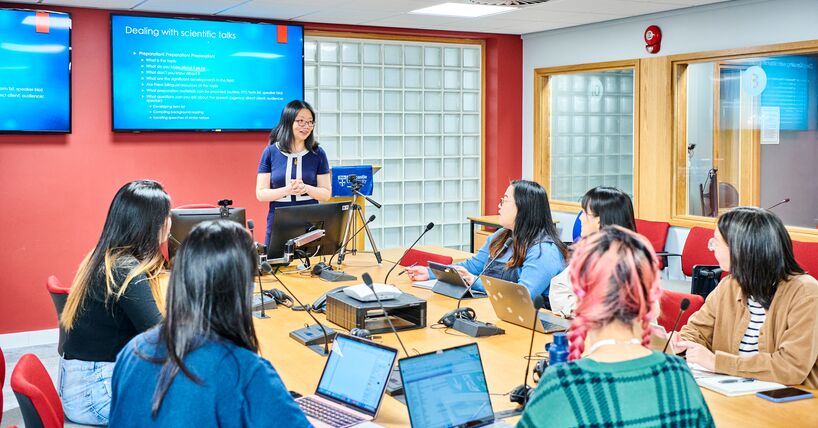Postgraduate Research
Our world-leading research covers a range of languages and disciplines. Join an international community at Newcastle University.
MLitt degrees
Our MLitt programmes are individually tailored to you. They contain some taught elements alongside guided independent research. Work closely with a supervisor to develop your ideas and research skills, while exploring research topics that you are passionate about.
Our modern language postgraduate courses offer a high level of independent work and give you a hands-on insight into PhD research.
PhD and MPhil
At Newcastle University we offer two advanced degrees that allow you to build expertise in a specialist area, while developing high-quality research skills. During both our PhD and MPhil courses, you will work closely with experts who are at the cutting-edge of their fields.
PhD
As a PhD student, you will spend three years working on a supervised thesis of 80,000-100,000 words. This is a substantial piece of independent research that contributes new knowledge to your subject area(s).
MPhil
As an MPhil student, you will complete a Research Masters, usually over 12 months. You will receive research training and undertake original research, resulting in a thesis of 40,000-50,000 words.
We offer the following programmes:
Research supervision
As a postgraduate researcher on either a PhD or MPhil, you will conduct original research work under the guidance of your supervisors. You'll have regular meetings (supervisions) to monitor your progress and develop an initial training plan to ensure that you are acquiring the appropriate skills for your research.
As a PhD or MPhil student, you enter into a dialogue with your chosen field(s) and your supervisors. As you develop your ideas, supervisions will focus on submitted written work. This will be discussed in depth and you will develop your research in response to these discussions.
How to apply for a PhD or MPhil
1. Review the programme details
Familiarise yourself with the MPhil and PhD programme and its requirements. These can be found on the course page for the MPhil and PhD.
2. Contact a prospective supervisor
If you are applying for a PhD or MPhil you are encouraged to contact a prospective supervisor before applying. This gives you a chance to:
- check your potential supervisor’s availability
- discuss your ideas before applying
- learn about potential funding
You can explore our staff research specialisms on the School Staff pages to identify academic staff whose interests align with yours.
We also recommend browsing our research themes, which provide an overview of our areas of expertise, as well as lists of staff members. This is a great way to find a supervisor who shares your research interests and can support your academic journey.
If you have any questions about finding a supervisor please contact modlang.pgadmin@newcastle.ac.uk
3. Prepare your research project proposal
Full guidance about this is available on the individual course pages.
4. Submit your application
Once you are ready to apply, you can find links to the application form on the course page that you are interested in:
Why choose a Research degree with us?
Join a vibrant research community
The School of Modern Languages at Newcastle University has a vibrant research community. We organise regular school seminar series, during which colleagues and visiting or invited researchers share their work. We also host scholars from around the world as visiting researchers. Postgraduate degree students are encouraged to:
- come along to these events
- suggest speakers
- participate in discussions
The Chinese Independent Film Archive also hosts regular film screenings and Q&A sessions with directors of contemporary film. These events are open to the entire school community.
As a languages degree postgraduate student, you will be encouraged to contribute to the wider life of the school. Postgraduate reps sit on several school committees including the Research Committee. Their input helps shape the direction of the school in tangible ways.
The school has strong links to research Institutes and Centres in the Faculty of Humanities, Arts and Social Sciences, including:
As a modern languages postgraduate course student, you will be encouraged to participate in these areas to:
- develop your expertise
- engage with research outside of the school
- forge lifelong friendships
Dedicated resources in the School of Modern Languages
All language degree postgraduate students have access to a quiet common room for study, as well as a dedicated postgraduate common room and kitchen.
We also have specialised resources that you can access to develop your research and hone your skills:
- two dedicated interpreting suites
- the Language Resource Centre, with audio-visual and computing facilities linked to a digital speech bank
Free language classes for students
As a student at Newcastle, you will also have access to our University-Wide Language Programme. This provides an opportunity to study one of a broad range of languages, from beginners (equivalent to A1 on the CEFR) to advanced (equivalent to B1/2). As a registered student at Newcastle this opportunity is provided free of charge.



